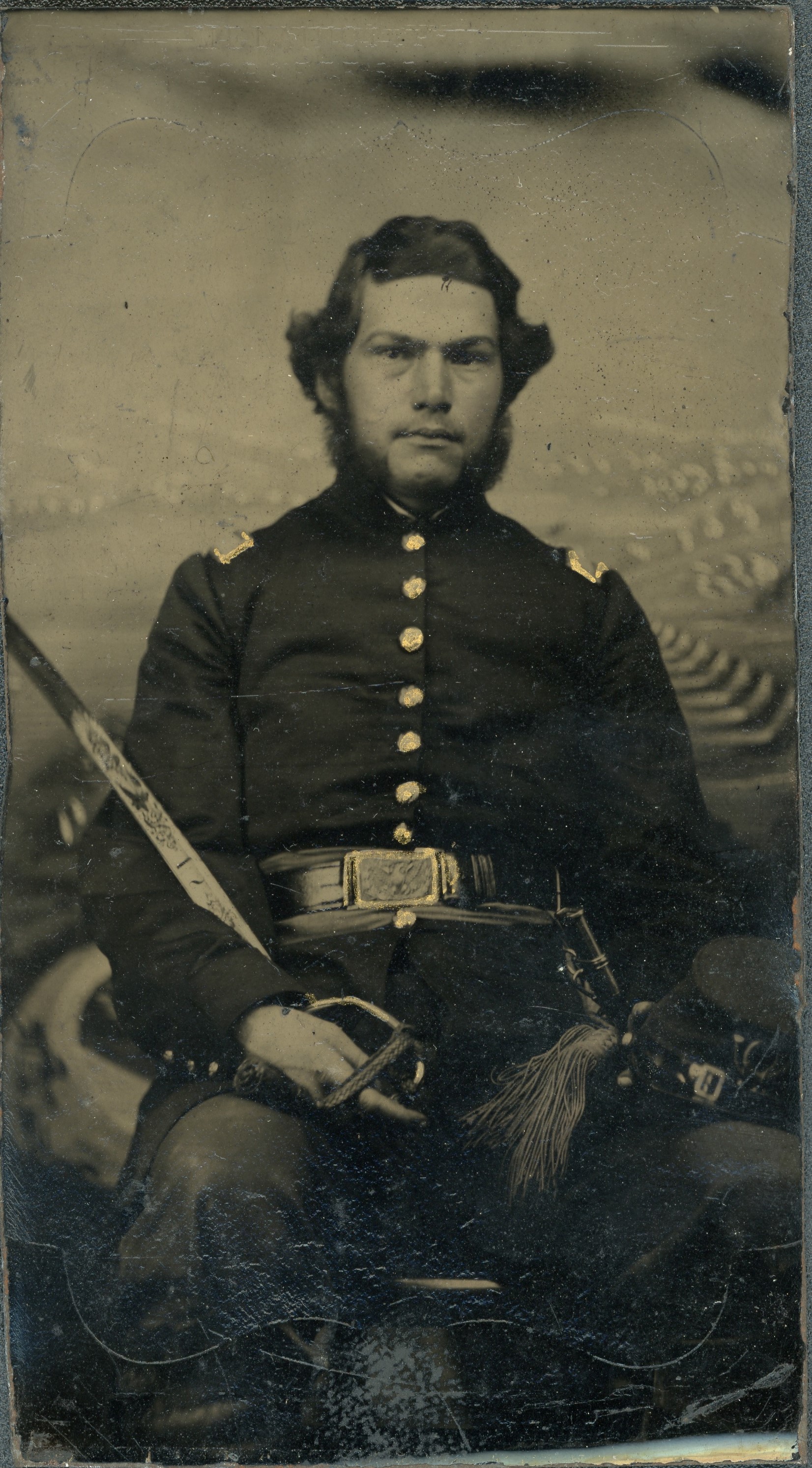George Waters Bicknell
George Waters Bicknell was born on November 2, 1837, in Topsham, Maine, to Bela and Abigail Bicknell. His father was a carriagemaker. He grew up and attended school in Bath, Maine, and he married Ellen Howard sometime before 1860. Their son George was born around 1860. Bicknell worked as a lumber dealer in Westbrook, Maine.
He enlisted in the Union army on July 21, 1861, and he mustered in as a private in Company H of the 5th Maine Infantry. The regiment took part in the Peninsula campaign, the Battle of Antietam, the Battle of Fredericksburg, the Battle of Chancellorsville, and the Battle of Gettysburg. He was promoted to 2nd lieutenant on October 3, 1861, and to 1st lieutenant on June 5, 1862. He fell ill in the spring of 1863, and army officials sent him home to recover his health.
He denounced “Copperheadism” in June 1863, noting that “foolish people [in Maine were] uttering the most damnable treasonable sentiments to which I ever listened.” He declared these men “traitors of our country” and wrote that he “hate[d] a traitor or a conditional supporter of the Constitution and Union.” He resigned from the army on March 9, 1864.
His wife died in the 1860s, and he married Emma F. Hathorne on January 1, 1866. They apparently had no children. He applied for a federal pension in September 1866 and eventually secured one. After leaving the army, he enrolled in a divinity school in Canton, New York. He was ordained as a Universalist minister in 1868. In the ensuing decades, he lived in West Fairlee, Vermont; Portsmouth, New Hampshire; Philadelphia, Pennsylvania; and Lowell, Massachusetts. Emma died on August 23, 1877, and he married Hannah E. Colesworthy on November 26, 1878. Their son Augustus was born around 1883.
He finally settled in Cambridge, Massachusetts, in 1890. “In all his ministries,” a Cambridge writer noted, Bicknell was “favored with large congregations, his earnestness and forcible manner of speaking appealing strongly to his listeners.” He joined the local chapter of the Grand Army of the Republic and delivered Memorial Day lectures about his Civil War service. He also wrote the History of the Fifth Regiment Maine Volunteers. He retired in January 1911, and he died of heart trouble in Cambridge on June 3, 1916.
Image: George W. Bicknell (Collections of the Fifth Maine Museum, Bicknell Collection)
DATABASE CONTENT
| (4278) | Bicknell , George Waters | 1837-11-02 | 1916-06-03 |
- Conflict Side: Union
- Role: Soldier
- Rank in: Private
- Rank out: 1st Lieutenant
- Rank highest: 1st Lieutenant
- Gender: Male
- Race: White
Documents - Records: 1
- (11850) [writer] ~ George W. Bicknell to Andrew T. Goodman, 9 June 1863
Places - Records: 2
Regiments - Records: 1
- (854) [enlisted] [H] ~ 5th Maine Infantry
SOURCES
1850, 1860, 1870, 1880, 1900, and 1910 United States Federal Censuses, available from Ancestry.com; The Cambridge (MA) Chronicle, 10 June 1916; Maine Marriage Index, 1670-1921, available from Ancestry.com; Maine Death Records, 1761-1922, available from Ancestry.com; General Index to Pension Files, 1861-1934, available from Ancestry.com; Massachusetts Mason Membership Cards, 1733-1990, available from Ancestry.com; George W. Bicknell to Andrew T. Goodman, 9 June 1863, DL1738.052, Nau Collection





